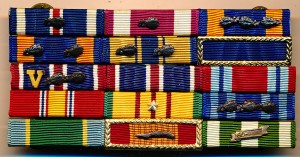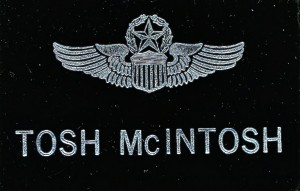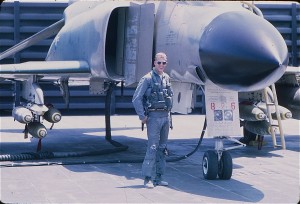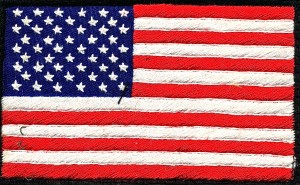Each morning with my coffee I peruse the Austin American-Statesman and a world-wide online news brief sent to me by a friend and fellow ex-military officer. On many occasions, I’m tempted to stop doing that, because in terms of the veritable good-news-bad-news dichotomy, I find far too much of the latter in relation to the former. Call me a pessimist if you will, but in my opinion, optimists today aren’t reading the mail.
 Twenty years’ experience as a fighter pilot and two combat tours in Vietnam have shaped my opinions about how the United States of America chooses when and where to employ its unequaled military prowess. With that personal history as my benchmark, I can only rate most of our martial actions over the past forty years as ill-conceived and doomed to fail from the very outset.
Twenty years’ experience as a fighter pilot and two combat tours in Vietnam have shaped my opinions about how the United States of America chooses when and where to employ its unequaled military prowess. With that personal history as my benchmark, I can only rate most of our martial actions over the past forty years as ill-conceived and doomed to fail from the very outset.
The impetus for this post began with an opinion piece in the Statesman of October 27, 2010, by Bob Herbert of The New York Times, titled, “How we treat our troops.” I’ve been working with it over the past few days, trying to deal with an issue that I take very personally, and this morning I found another reason to complete the post and publish it when I read “An act of remembrance” by Kevin Cullen of The Boston Globe.
I have no idea how many Americans read either of these pieces, and I’m certain far fewer will ever read this. But that doesn’t alter the importance of speaking out in whatever small way I can about the symptoms of a pervasive cancer gripping this nation and eating it from the inside out. It’s called narcissism. We wear it like a cocoon to shield us from the harsh reality we refuse to acknowledge.
 Herbert uses the war in Afghanistan to make the point that “A good and humane society would not keep sending its young people into that caldron,” and further, “We can get fired up about Lady Gaga and the Tea Party crackpots. We’re into fantasy football, the baseball playoffs, and our excessively narcissistic tweets. But American soldiers fighting and dying in a foreign land? That is such a yawn.”
Herbert uses the war in Afghanistan to make the point that “A good and humane society would not keep sending its young people into that caldron,” and further, “We can get fired up about Lady Gaga and the Tea Party crackpots. We’re into fantasy football, the baseball playoffs, and our excessively narcissistic tweets. But American soldiers fighting and dying in a foreign land? That is such a yawn.”
Herbert would bring back the draft “in a heartbeat.” So would I, because that’s the only way to repair America’s broken foreign policy and address the outrageous injustice being perpetrated against those in uniform.
Like the 29-year old who died a few weeks ago on his twelfth combat tour, four in Iraq and eight in Afghanistan. Yeah, I know, he might not have had to serve that many, but that’s what we rely on, right? The volunteer. The one who stands up to be counted for something far more significant than personal convenience and fascination with materialistic self-indulgence. And let’s not forget that while twelve tours may be unusual, multiple tours are absolutely normal.
Why don’t we wake up to the fact that we don’t have enough volunteers to fight endless, and particularly, senseless, wars? Herbert: “Americans are big on bumper stickers, and they like to go to sporting events and demonstrate their patriotism by chanting, ‘U-S-A! U-S-A!’ But to put on a uniform and go into harm’s way? No thanks.”
 The basic problem is that it’s too easy to ignore the bloody toll of meat-grinder wars. Rather than pay close attention to all aspects of their horror, we let the other guy or gal do it. Once they’re out of sight, they’re out of mind, and, oh, have you seen that new iWhatever?
The basic problem is that it’s too easy to ignore the bloody toll of meat-grinder wars. Rather than pay close attention to all aspects of their horror, we let the other guy or gal do it. Once they’re out of sight, they’re out of mind, and, oh, have you seen that new iWhatever?
Even the carnage close to home fails to drag our faces away from the glowing screens that have come to dominate our lives. What about the tragic increase in the number of soldiers killing themselves? What about the shortage of available professionals to treat stressed-out, depressed, and despondent soldiers seeking help, who are only the tip of the iceberg of those needing it? What about the antidepressants, sleeping pills, and anti-anxiety drugs we use to medicate troops before sending them back into action?
This disaster is not a myth. An analysis of death certificates from 2005 through 2008 in one state alone shows that after being discharged from the military, combat veterans died as a result of suicide, vehicle accidents, and drug overdoses at a rate three times that of active-duty military members from combat wounds in Iraq and Afghanistan during the same period. They can survive over there only to be ignored and allowed to self-destruct over here. If that doesn’t make you angry, what will?
And for what? Calling the wars in Iraq and Afghanistan colossal fiascos is an understatement in the extreme. Herbert: “To continue them without taking serious account of the horrors being endured by our troops and their families is just wrong.” Amen.
What have we got to show for the bloodshed and lives lost in the longest period of war in American history? Osama bin Laden still sends messages to us from his spider hole. Maybe we should call it anti-social networking. The Afghan army is a joke. Their government is a farce. Our ally in Pakistan can’t be trusted. And we persist in the self-generated idea that we can remake a country whose entire history is filled with clan warfare and internecine feuding.
 Just this morning, we learn that in the deadliest day since May, a series of well coordinated bombings and mortar strikes has killed at least 76 people and wounded more than 230 in Baghdad. I guess U.S. and Iraqi officials were wrong a few months ago when they said the insurgency was all but defeated. Why would we expect anything else? Iraq has been without a new government since the March 7th election debacle. Who do we think will fill that vacuum? A bunch of pacifists?
Just this morning, we learn that in the deadliest day since May, a series of well coordinated bombings and mortar strikes has killed at least 76 people and wounded more than 230 in Baghdad. I guess U.S. and Iraqi officials were wrong a few months ago when they said the insurgency was all but defeated. Why would we expect anything else? Iraq has been without a new government since the March 7th election debacle. Who do we think will fill that vacuum? A bunch of pacifists?
According to an article by Rebecca Santana of the Associated Press: “The surge in violence is raising fresh concerns about the planned pullout of U.S. troops next year. A State Department audit concluded Tuesday that the Obama administration could be overstating what U.S. diplomats can do to contain Irag’s ethnic and sectarian tensions without U.S. military forces.”
Ya think? It takes an audit to figure that out? Oh, but wait. We’re the United States of America and we can do anything, right? If that were only true.
To eliminate fallacious thinking in government and return sanity to America’s foreign policy would require only one thing: spread the burden of combat evenly throughout society.
 How eager do you think politicians and the American public would be to send our troops into harm’s way if every son, grandson, daughter and granddaughter were vulnerable to being slaughtered by a fanatic in a foreign land? Then it wouldn’t be someone else’s loved ones who sacrifice everything for their country. Saber-rattling would take on a whole new dimension.
How eager do you think politicians and the American public would be to send our troops into harm’s way if every son, grandson, daughter and granddaughter were vulnerable to being slaughtered by a fanatic in a foreign land? Then it wouldn’t be someone else’s loved ones who sacrifice everything for their country. Saber-rattling would take on a whole new dimension.
In Cullen’s article, Rabbi Raphael Kanter of Tifereth Israel in New Bedford, Massachusetts, notes that most Americans go through every day not giving the wars a passing thought. “A small segment of our country is bearing the burden of these wars. Why is it that when our veterans come home, their care is so poor? If the children of the rich and powerful were fighting, that wouldn’t be the case. I think the draft should come back. It’s unconscionable that we’re not sharing the burden of war equally.”
Cullen: “So in this, the most political of seasons, when politicians have been talking about everything but the wars that are bankrupting the nation and robbing us of so many fine young men and women, a congregation at a synagogue in New Bedford reminds itself every week what honor and sacrifice really mean.”
 The congregation pauses, listens, and remembers as a member stands and reads the names of servicemen and women who died most recently serving their country. This simple act of remembrance is born of a conviction that the wars are too invisible.
The congregation pauses, listens, and remembers as a member stands and reads the names of servicemen and women who died most recently serving their country. This simple act of remembrance is born of a conviction that the wars are too invisible.
I submit that a crucial measure of a nation’s greatness is how it treats the men and women who serve. Against that standard, America is a failure. It began with so much promise, and we’re letting it slip away one young life at a time with no end in sight.


